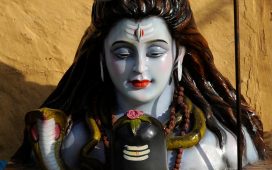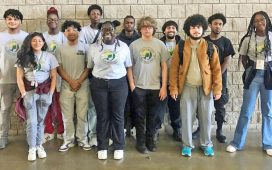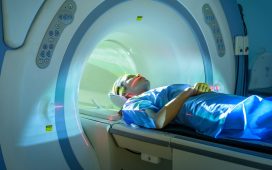
The landscape has changed.
I shuddered when, in March, the Centers for Disease Control predicted that 100,000 people would die of COVID-19 by June. I estimated that is at least 3,000 deaths per week. As I write this, we have reached 100,000 and beyond. The New York Times, on May 24, devoted its entire front page to listing the names of just 1% of the dead — 1,000 names. On Memorial Day, when we commemorate the thousands who died and were injured in wars, we face the irony that the number of deaths in all the wars of the 20th and 21st centuries are less than the casualties of the novel Corona virus in the last five months.
What is now clear is that we’re in a total, multi-dimensional crisis. A plague-caused public health catastrophe is linked to a devastating economic downturn, with impact across our society — education, arts, sports, and mental health. The result is a Sophie’s Choice situation — we have to make decisions, and whatever we decide will unavoidably result in deaths. Some decisions are better than others, but none of them can escape Sophie’s dilemma.
We are called upon to shape our future in the face of events that are beyond our control.
I have devoted most of my life to theology, trying to understand life in its relationship to God –
in this blog, I will begin to share my theological struggling.
Where is God in our present situation?
The world is God’s. God made it and sustains it — this is basic Christian belief. Freedom is built into creation. We know freedom must be precious to God, because God initiates freedom, responds to it, bends it, but does not destroy it. It may seem an oxymoron, but God determines the creation to be free.
Our lives take place in this mysterious and frustrating mix of God’s determining will and our freedom. The current pandemic is a case in point. We did not seek out a devastating coronavirus and ask for a plague. God did not send the plague upon us as a testing of our stamina or a punishment for our sins.
Our free action is woven into the plague, however, and its virus. Whether the virus originated in a wet market (which is a human commercial enterprise) or in a sophisticated high-tech lab, or both, human action was an engine for its propagation. Not only our action, but our free action of which we are so proud — entrepreneurial business activity and awesome biological science.
On one hand, God does not stifle our freedom; but on the other hand, God does not save us from the consequences of our freely chosen actions. When those consequences promote human flourishing, we consider them to be gracious. But when they bring suffering and misery, we call them the wrath of God.
God is equally present in grace and wrath. Harmony with God’s will is grace. Wrath is the signal that we are out of sync with God.
So, where is God in our situation?
God is graciously present as suffering and consoling God. Think of the Pieta sculptures — the dying Jesus taken down from the cross and resting in Mary’s arms. Both figures are present in our situation today — dying Jesus with all those who died and their suffering loved ones, compassionate God represented by Mary sustaining us all in this crisis.
God is present in grace-inspiring actions of love among doctors, nurses, caregivers, workers of all sorts who are pouring themselves out for others, making life better than it would be without their efforts. Grace is also available to those who govern, plan, and bring expert knowledge to bear. God’s spirit enlightens and enables compassion, courage, and competence.
God is also present to us today in wrath. When grace is ignored or twisted for personal interest, egotism, or the desire to dominate, the consequences of human action turn wrathful. Wrath does not mean God is absent; on the contrary, God is very close in wrath — but it is the closeness of hostility.
Wrath is God’s response not only to evil, but also to ignorance, stupidity and incompetence. Our unwillingness to acknowledge the pandemic and our ignorance of the virus’s effects — these do not get a pass, their consequences assail us, to the point of suffering and death itself. I observe that there is much denial in America of the Sophie’s Choice dimension of our present experience. Denial will not make it go away, it rather makes the death more pitiable.
Our social turf has been seeded with grace and wrath for a long time. Our science and technology have been building for a hundred years or more, and God works through it. The racism and economic inequality have also been at work — since the origins of slavery in North America in 1619. The devastation wrought by the virus is interwoven with slavery, displacement of Native Americans, and poverty. Brilliant, dedicated doctors and nurses cannot erase the long-term effects of American racism and savage capitalism.
In some ways, the pandemic seems far removed from the killing of George Floyd in Minneapolis, but they are interrelated in the Pieta image that describes our life today.

Phil Hefner
Dr. Philip Hefner is an ordained minister in the ELCA and is professor emeritus of systematic theology at the Lutheran School of Theology at Chicago. He directed the Zygon Center for Religion and Science from 1988 to 2003 and is the former Editor-in-Chief of Zygon: Journal of Religion and Science. He has authored numerous books and articles, and is best known for his book, The Human Factor: Evolution, Culture, and Religion.
Related posts







